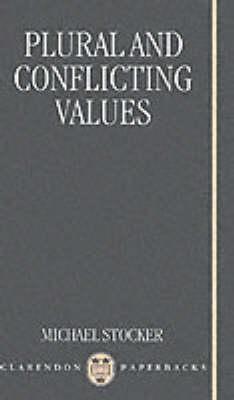Overview
Storrs McCall presents an original philosophical theory of the nature of the universe based on a striking new model of its space-time structure. He shows that this theory can illuminate a wide variety of hitherto unresolved philosophical problems. These include: the direction and flow of time; the nature of scientific laws; the interpretation of quantum mechanics; the definition of probability; counterfactual semantics; and the notions of identity, essential properties, deliberation, decision, and free will. A particular instance of the explanatory powers of the proposed space-time model is its account of quantum non-locality in the EPR and GHZ experiments. Professor McCall argues that the fact that the model explains and throws light on such a broad range of problems constitutes strong evidence that the universe is as the model portrays it.
Full Product Details
Author: Storrs McCall (Associate Professor of Philosophy, Associate Professor of Philosophy, McGill University, Montreal)
Publisher: Oxford University Press
Imprint: Clarendon Press
Dimensions:
Width: 16.40cm
, Height: 2.30cm
, Length: 24.20cm
Weight: 0.615kg
ISBN: 9780198240532
ISBN 10: 0198240538
Pages: 338
Publication Date: 03 February 1994
Audience:
College/higher education
,
Professional and scholarly
,
Undergraduate
,
Postgraduate, Research & Scholarly
Format: Hardback
Publisher's Status: Active
Availability: To order

Stock availability from the supplier is unknown. We will order it for you and ship this item to you once it is received by us.
Reviews
This wide-ranging book is McCall's most complete elaboration and defense of his long-held branching model of the universe, according to which the past and present of the universe at any time consists of a single space-time manifold (represented as the trunk of a tree) while the future at that time consists of a multiplicity of space-time manifolds (represented as the tree's branches) ... McCall's defense of his thesis is elegantly and concisely written, clear in its organization and development, and impressive in its scope William Lane Craig, International Philosophical Quarterly 'McCall's candour and integrity as an arguer are not less impressive and engaging than his ingenuity and tenacity. His book abounds with fresh theories and perspectives ... McCall's novel treatment of free choice .. is scholarly and inventive.' Times Literary Supplement 'presents the most coherent and fully worked-out account of the universe that takes seriously indeterminism and the dynamic nature of time ... McCall's branching-tree model is the best altnerative version yet to be produced, and will occasion mcuh discussion and dispute in metaphysics and the philosophy of logic ... his discussion of quantum mechanics is well-informed and illuminating ... McCall has managed to put forward in a clear, well-argued and accessible form a vision of the world which accords with quantum mechanics and does justice to many of our deepest intuitions, and within that setting has acounted for many other fundamental concepts - cause, identity and choice, among others - in a stimulating and illuminating way. It is a must for every philosophical library, and any philosopher who is serious about metaphysics or interested in contemporary topics in philosophical logic.' R. J.R. Lucas, International Studies in the Philosophy of Science, 8:3 His handling of the problems is invariably illuminating and exciting ... Of the many topics with which McCall deals, the most interesting is that of human decision. He delineates with exceptional clarity the way in which a free decision has to occupy a niche lying between rigid determinism on one hand and blind chance on the other ... McCall's arguments ... open our eyes to the very real cosmic role for humanity. The Scientific and Medical Network
His handling of the problems is invariably illuminating and exciting ... Of the many topics with which McCall deals, the most interesting is that of human decision. He delineates with exceptional clarity the way in which a free decision has to occupy a niche lying between rigid determinism on one hand and blind chance on the other ... McCall's arguments ... open our eyes to the very real cosmic role for humanity. * The Scientific and Medical Network * 'presents the most coherent and fully worked-out account of the universe that takes seriously indeterminism and the dynamic nature of time ... McCall's branching-tree model is the best altnerative version yet to be produced, and will occasion mcuh discussion and dispute in metaphysics and the philosophy of logic ... his discussion of quantum mechanics is well-informed and illuminating ... McCall has managed to put forward in a clear, well-argued and accessible form a vision of the world which accords with quantum mechanics and does justice to many of our deepest intuitions, and within that setting has acounted for many other fundamental concepts - cause, identity and choice, among others - in a stimulating and illuminating way. It is a must for every philosophical library, and any philosopher who is serious about metaphysics or interested in contemporary topics in philosophical logic.' R. J.R. Lucas, International Studies in the Philosophy of Science, 8:3 `McCall's candour and integrity as an arguer are not less impressive and engaging than his ingenuity and tenacity. His book abounds with fresh theories and perspectives ... McCall's novel treatment of free choice .. is scholarly and inventive.' Times Literary Supplement This wide-ranging book is McCall's most complete elaboration and defense of his long-held branching model of the universe, according to which the past and present of the universe at any time consists of a single space-time manifold (represented as the trunk of a tree) while the future at that time consists of a multiplicity of space-time manifolds (represented as the tree's branches) ... McCall's defense of his thesis is elegantly and concisely written, clear in its organization and development, and impressive in its scope * William Lane Craig, International Philosophical Quarterly *



